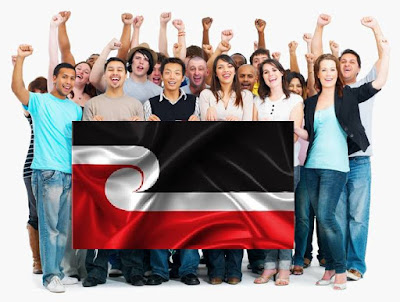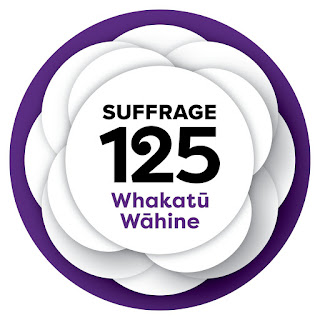Disbanding Melting Pot Massacre: Some reflections on being in an Asian feminist punk band
MPM has disbanded.
But I like to think of it as transforming the nature of our
musical relationships with each other. Opening it up. More fluidity rather than
fixed band members and instruments. I am both sad about the end of the band as
it was and excited about the possibilities of creative directions for the
political messages we want to convey and express. But I want to reflect on what
it meant to be in/part of a band, more specifically an Asian feminist hardcore
punk band.
For me and Shasha, we’d both been attracted to and involved
in punk scenes, played in other bands. I’d been in an anarcha-feminist riot
grrrl band with white grrrls called Hysterror, then it was renamed Mad Bitcher.
But before that band, I remember answering an ad online for a guitarist when I
was 15 and it was two white cis-boy punks and when I met up with one of them in
person, they were surprised and had thought that I was gonna be a guy and
seemed quite disappointed. Later, they never made an effort to even have one
jam with me. That was my first experience of sexism/racism/ageism in almost
being in a punk band.
I’ve always felt quite alienated in the punk scene in
Auckland. I wasn’t into drinking, smoking or taking drugs. But I was attracted
to the politics of punk and the spirit of rebellion and resistance in the
lyrics of the punk bands I was listening to: Crass, Zounds, Propagandhi,
Choking Victim, Contravene etc. I got into more political punk music through pop punk which was being played all over the radio around the early 2000s with Blink 182, Good Charlotte and Green Day. Feeling like a misfit, their music was easier to connect with than the mainstream poppy love songs at the time. With the war on
Iraq and invasion of Afghanistan happening, I got involved in activism and
there’d be punks on the demos. The first person who introduced me to anarchism
was a punk kid at a protest to free Ahmed Zaoui. I started going to local all
ages punk shows and became friends with some of the more political punks, the
crusty anarcho-punks. In general, the bands that were around in Auckland
weren’t all that political then and pretty much all white men. I think the
Coolies and the Quims were the few women-led bands that were around but the Coolies
disbanded not long after I got involved. I still remember their set on International
Women’s Day in 2005.
Despite the assholes I came across in the punk scene, the
gigs and music helped create some sense of community and solidarity among young
people getting into punk or activism at the time. They provided a social space
for political discussions hanging out outside in the middle of the night
breathing second-hand smoke in between bands. Those were the days of police
raids of shows with pepper spray, sometimes arrests, lots of questioning, and
people were beaten up on demonstrations. These run-ins with the law enforcers
exposed me only partially to the extent of police violence and brutality.
Though these were shitty experiences, it strengthened a sense of solidarity and
community for those of us that were politicised.
The more my analysis became shaped by feminism and
anti-racism that challenged the class-centrism that universalized white men’s
experiences of capitalism, the more disillusioned I became with the dominance
of drunken and sober sexism, homophobia and racism. It wasn’t really my community
and could never really be. Even though I’d been associated with the punk scene
in Auckland for maybe 9 years now, when we started MPM, it felt like we were by
default on the outside, trying to work out where/if we fit in. We had good shows,
bad shows, fucking amazing shows and played with fucking awesome bands we
really admire. But that sense of community and connectedness wasn’t really
there.
The experience of being in a band beyond the ‘punk scene’
has meant a lot to me. To be able to play with other people of Asian diasporas
with similar politics and be angry and scream from our standpoints was
something I never got to do before. I could write lyrics that my bandmates
would get. If I was in a white person-fronted band, it wouldn’t work for them
to be singing it. Music is so personal/political. Not just the contents of the
lyrics, but also the form, the per-form-ance and the process of creative
production. Being in a band is like being in a relationship with all your
bandmates, you have responsibilities, negotiations, conflicts – but there’s
something really magical when you’re jamming and the sounds, rhythms just gel
and move together (like sex!). You lose yourself in the music and forget you’re
the ‘individual’ that neoliberal ideology convinces you you are.
Some songs can take ages to perfect but with “Migrant and Refugee Solidarity Song”, we jammed it out in one session, we just did it together without even really speaking. It’s not like you just hear the song, but you feel it and make it at the same time with the whole of your being. The sense of collectivism in the creation process and during the performance where everyone has an equality crucial role to play that is really different to say, rapping alone to digital beats, spoken word or making a speech. It’s that interdependency and collectivism of being part of something beyond the sum of individuals involved is so missing in other forms of social interactions. This aspect of being in a band is amazing, and the post-performance highs can be epic, leaving you buzzing and unable to sleep. Then there are also the lows and I’m glad I was warned about them early on.
Some songs can take ages to perfect but with “Migrant and Refugee Solidarity Song”, we jammed it out in one session, we just did it together without even really speaking. It’s not like you just hear the song, but you feel it and make it at the same time with the whole of your being. The sense of collectivism in the creation process and during the performance where everyone has an equality crucial role to play that is really different to say, rapping alone to digital beats, spoken word or making a speech. It’s that interdependency and collectivism of being part of something beyond the sum of individuals involved is so missing in other forms of social interactions. This aspect of being in a band is amazing, and the post-performance highs can be epic, leaving you buzzing and unable to sleep. Then there are also the lows and I’m glad I was warned about them early on.
We encountered a lot of challenges as a band, some were
fairly predictable but still disappointing. The DIY music scene, largely being
apolitical don’t tend to try to understand us or what we’re about. Like the typical
migrant situation we had to learn and understand their (sub)culture to navigate
it but there’s rarely any consideration of if that should also maybe happen the
other direction. We can fill a token slot, make the punk scene appear to be all
accepting, multicultural and pro-feminist, but never get our politics taken
seriously unless we kick up a fuss about it and then we’re expected to do the
educating on privilege and complicity 101. Gets super tiring.
We’ve been silenced and had our agency over
self-representation denied ‘cause some white folks didn’t get a joke about
‘reverse racism’. We’ve had other people of colour attack us for naming
whiteness, as if that’s racist. We learnt that an influential person in the
music scene was a perpetrator of gendered violence and have cut all connection
with them. We’ve had to defend ourselves
for not wanting to play shows with homophobes. We got a lot of shit and
defensiveness from people who just didn’t get it.
We’ve also had invaluable support from our friends, flatties
and allies. Without them we couldn’t have done what we did.
What’s interesting is that as a band, we have connections
and identify with so many different communities and movements – feminisms,
anti-racism, anarchism, decolonization, queer and trans liberation, migrant
communities, animal rights, anti-capitalist student movements, and yet never
neatly fitting into any of those movements and often alienated from our own
communities. This did give us opportunities to play to very different audiences
but for most shows and festivals, it never felt ‘at home’. Except maybe our
first show that we organized – “Decolonise the Mic” as part of the Decolonise
Your Mind hui. Best audience ever!!
Being in this band with all the previous and existing band
members before the disbanding has meant so much to me. It made me feel less
alone in the fight in the struggles for liberation and equality. We reached
people and met people in ways we wouldn’t have otherwise met, and got to know
people in ways we could only do through music. We’ve built new relationships
with people through performing, organizing and just being/having a presence.
Those are the connections that matter and will last beyond the band.
I still feel partially connected to punk because it played
an important role in radicalizing my perspective of the world. As a genre of
music, we really owe it to the African-American brothers who formed the band
Death before any white punks bands existed. What I really like about punk is
that you don’t have be good at your instruments, you can still make music and
say things in your own way without feeling like you haven’t met some sort of
professional standard. And I’d fucking love to see more feminists of colour
pick up a guitar and start a band. Maybe then can there be a community of us. I
think we all just want to feel like we belong somewhere and it’s especially
hard where you can never feel fully comfortable in any established communities,
and at this point, I know it’s not a place I will ever “find” but a place we
have to make for ourselves.
I think music has a special place in social change and revolutionary
movements. It’s certainly been part of altering my political consciousness. And
we will continue to create, just not in the same way or form. For us to create
in a world where all that is important is constantly destroyed or under attack
is a way of fighting back. To create is to demonstrate that the systems of oppression
can never destroy or control our hearts and minds. Your voice, your expression,
art, performance, words are important, especially if you’ve been taught to hate
yourself – for being a girl, queer, trans, non-binary gendered, non-white,
indigenous, an immigrant, a refugee, unemployed, working class, classed as
“crazy”; if your love and care for all animals and the earth has been
trivialized or ridiculed. When you speak, make music, write or create, it’s a
political act in itself.
You don’t have to wait for someone else to come along and speak your thoughts and experiences for you, that day may never come if you don’t do it yourself. That’s why we existed.

.jpg)


fuck yes, yes, yes. predictable but disappointing. clear and powerful words, and love your art work. we'll form new projects this year, reframe the challenge and kick new holes til we see daylight. x
ReplyDeletechoice article!
ReplyDelete